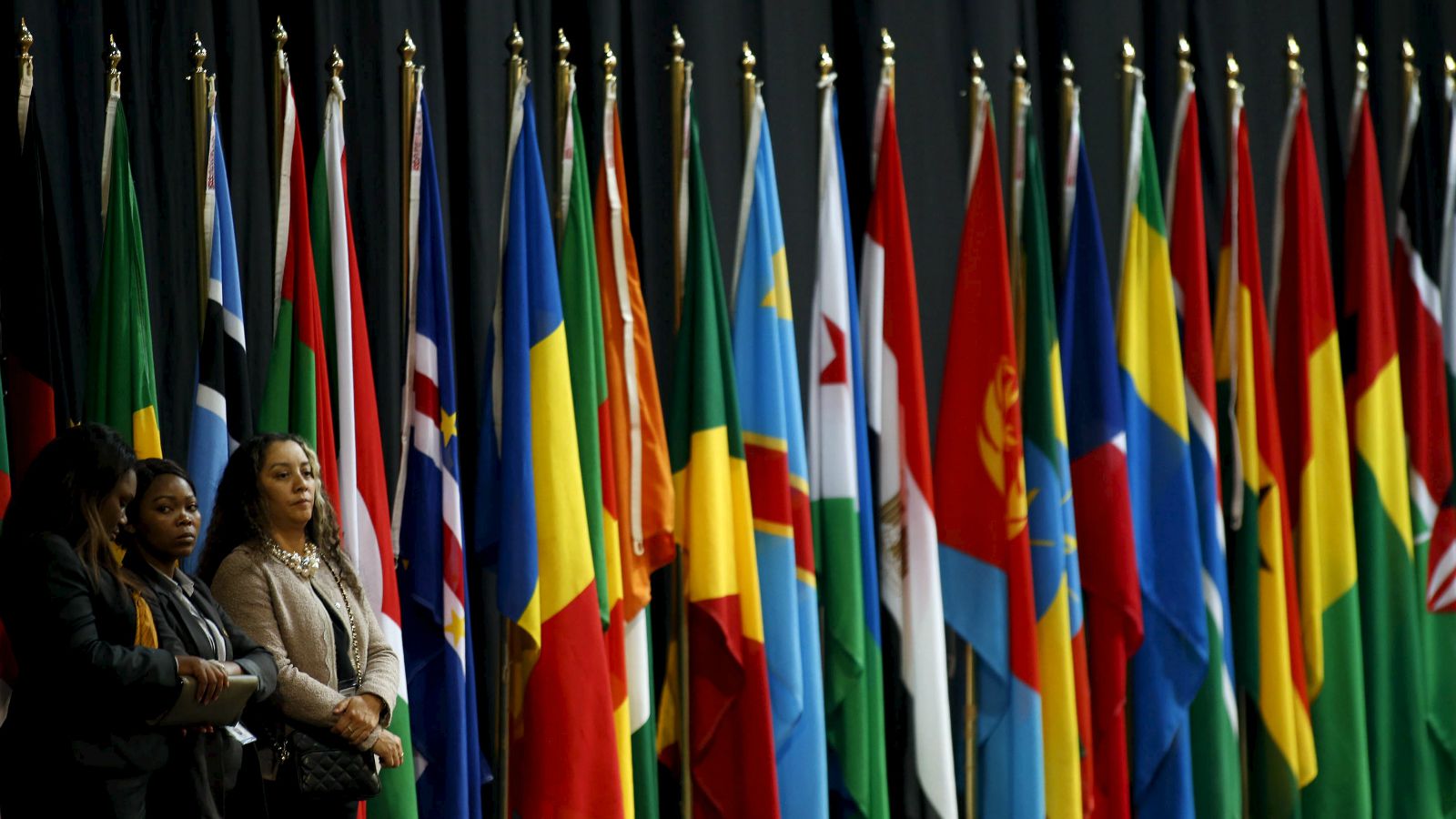Iran initiates presence in Africa by foreign minister's post-JCPOA tour

EghtesadOnline: The visit of Foreign Minister Mohammad-Javad Zarif to four African countries can be a turning point for economic ties with the developing states of West Africa.
That's the first visit of Iranian foreign minister to Africa after his big success in reaching the Joint Comprehensive Plan of Action (JCPOA) with the G5+1.
The diplomatic success can serve as a model for regional and world states for Settlement of International Disputes without firing a single bullet, according to IRNA.
Zarif embarked on a tour of West African nations, which took him to Nigeria, Ghana, Guinea Conakry and Mali, from July 24 to July 29.
The first tour of Zarif to Africa included such countries as Kenya, Uganda, Tanzania, Zanzibar and Burundi, which have been successful.
In Summer 2015, Zarif visited two North African states of Algeria and Tunisia.
During his recent tour of West Africa, Zarif visited presidents, speakers and foreign ministers of the four African countries.
Implementation of the Joint Comprehensive Plan of Action led to new economic and investment opportunities in line with the Constitution of the Islamic Revolution.
Implementation of the JCPOA removed the doubt of the African states about the long- and mid-term cooperation with Iran due to unfair sanctions on Iran and the widescale media campaign on Iranophobia.
As many countries are pleased with the nuclear agreement and consider it as a new model for diplomatic campaign to avoid conflict and take it as Iran prefers to work with the outside world.
They have announced readiness to expand diplomatic and economic ties with Iran and develop cooperation.
Evidently, in the new era there are abundant opportunities which if they are used well, relations between Islamic Iran and the countries will develop.
Meanwhile, visit of Zarif to the four African states indicates that Iran adopted comprehensive program for presence in Africa.
Zarif was accompanied by important economic delegation, comprising officials of different ministries, institutions and organizations whose business are trade and commerce.
During Zarif's stay in the four African states, the Joint Economic Commissions with every African state were held and the economic officials and delegations led by the foreign minister met with their counterparts.
The trend has been encouraging for the Iranian traders to conduct face-to-face talks and present their proposals to their partners so that with the preparatory works, the negotiations led to signing the economic and commercial contracts.
Meanwhile, the four African states have wide-spectrum shortage on infrastructures, development, education and knowledge, as well as technical and engineering services, agricultural and industrial machinery, consumer goods and foodstuffs, sanitary and medical services and equipment, power and energy and housing.
Additionally, growing economic capacity of Iran in the post-sanctions era can serve as a huge opportunity on win-win strategy for both Iran and the African states.
It's necessary to mention that Iran's considerable capacity to produce food supplies and pharmaceuticals, industrial products, industrial and agricultural machinery, construction materials, power generation industries, power transmission lines, technical and engineering service export would be lucrative if Iran is actively present in the markets overseas and African states can be the most suitable markets for such goods and services.
Moreover, commercial transactions and economic vibrancy, boosting the products, industry and agriculture, and most importantly, oil diplomacy with those countries will lead to more engagement with the countries.
On the other hand, it seems that development of oil diplomacy is the most important achievement of the visit for Iran. Among important fields of concern of this new approach is Iran's cooperation with Nigeria in the oil and gas sectors.
Nigeria is the 10th country for its rich oil resources and the 8th oil exporter worldwide. It is major oil producer in Africa and that's exactly why development of oil diplomacy with the influential country in the world energy market can have many benefits for Iran.
The energy diplomacy and power generation, distribution and transmission are the very suitable grounds for cooperation with Nigeria.
Nigeria is a highly populous African member of the OPEC and the World Trade Organization.
Evidently, cooperation with Nigeria in the fields will help coordination in the OPEC sessions.
Hence, Islamic Iran is a county, which has despite all the restrictions and mismanagements in the past eight years been able to enjoy extensive support of the great Iranian nation, thus taking important step to gloriously open up to the world community following the JCPOA.
Such recourse can ascend Iran to a lofty position in the region and the world; amicable engagement with different world cultures and civilizations will lead to establish a new Islamic civilization with such developed state.


